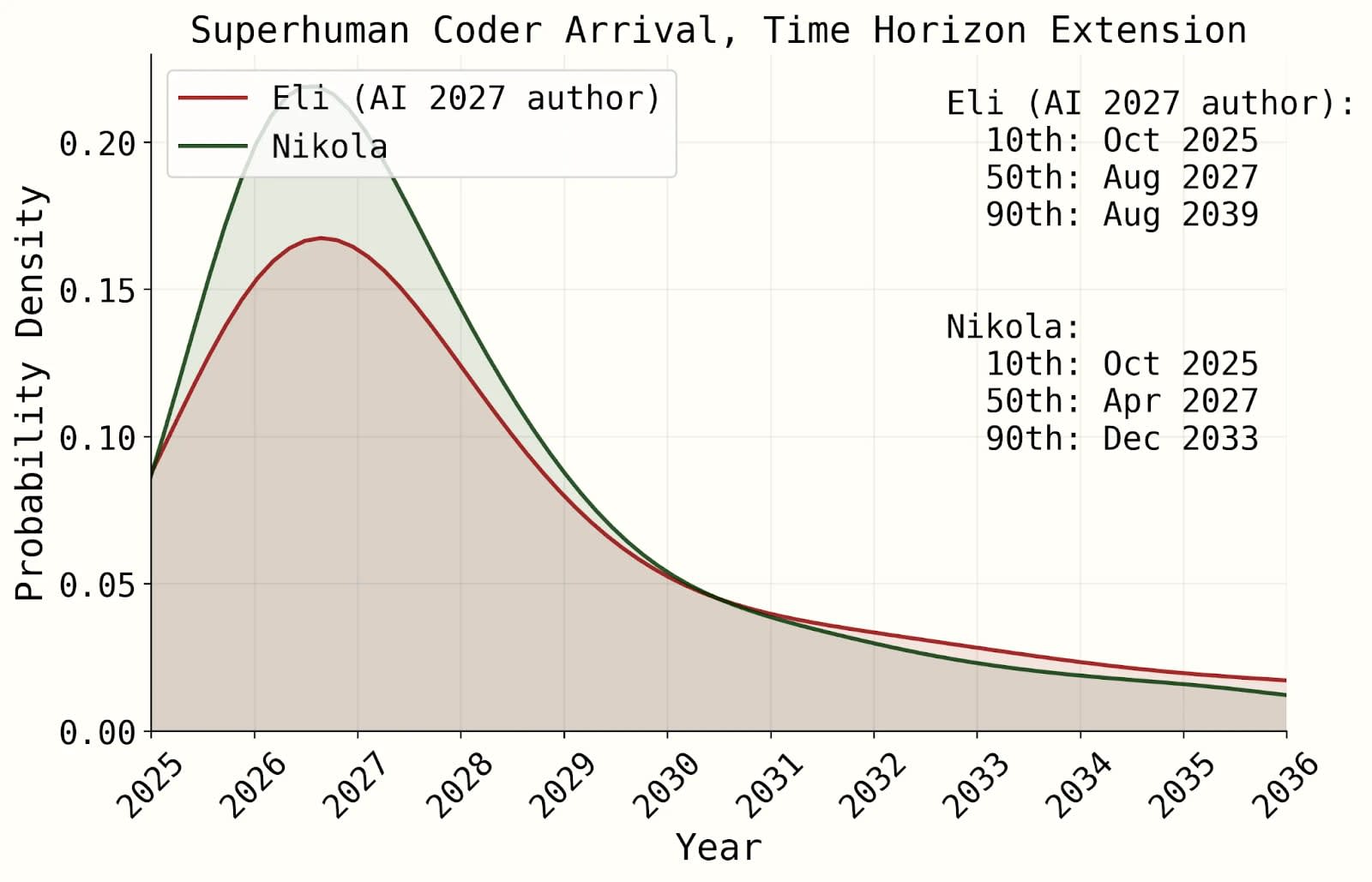It feels like it’s been a while since we had an appreciation thread. At a tough time for the community I thought that might be especially nice for all of us. I get a lot out of gratitude journaling, but I also really enjoy hearing what other people are appreciative of, big and small. I’ll try to get us started with a few things of different scopes and subject matters, to hopefully make it as easy as possible for others to chip in with whatever they feel appreciative of today!
156
156
Reactions
I’m appreciative for Shakeel Hashim. Comms roles seem hard in general. Comms roles for EA seem even harder than that. Comms roles for EA during the last 3 months sound unbelievably hard and stressful.
(Note: Shakeel is a personal friend of mine, but I don’t think that has much influence on how appreciative I am of the work he’s doing, and everyone else managing these crises).
I’ve never spoken to him but think he’s doing a great job at a difficult time in a difficult role
I’m grateful to the women who have publicly spoken about sexual misconduct in EA, which I hope will result in us making EA spaces safer and more welcoming to women.
I appreciate the fact that when I teach undergraduate courses on Effective Altruism, the students tend to find the movement's insights, practices, and ethics both fascinating and inspiring.
Despite all the media controversy around EA the last few months, most ordinary students simply haven't heard any of this media negativity. Indeed, most haven't heard of EA at all. But they resonate to the ideas, and that's what matters.
I regularly work in two different office spaces, and both of them are just really nice to work in. It makes a big difference to my productivity and happiness to be able to work in an office alongside people working on similar projects, and for that to be somewhere that’s carefully optimised so that I have the equipment I need, good internet, quiet meeting rooms etc. I’m grateful to all the people making that possible, including Jonathan Michel, Josie Inaldo, Tom Hempstock, Balázs Rapi and Marco Pace.
I appreciate the speed of forming friendships with strangers. I feel like our movement is outstanding and gorgeous in the sense that if I woke up one day teleported to a strange town where I didn't know anyone, the speed at which I could make friends by going to an EA meetup is really special.
When I do travel, EA meetups are like old friends I've never met before.
I think this is an important property that I hope to protect through movement growing pains.
I think the people I'm around in this community are really surprisingly good at helping me live up to my values. Sometimes that's by role modelling it - I think I wouldn't have donated nearly as much as 10% over my life if I hadn't come across Giving What We Can. Some of it is by being willing to challenge me and point out hard things, and trusting me to take negative feedback in the kind spirit it's meant. A lot of it is just by suggesting specific new things to try that might make it easier to achieve my goals - even just small things like things to help me sleep and wake up so I'm less likely to be underslept.
Yep, I can appreciate the span of 22 years of veganism, and now live in London, where I can go to any random pub and get vegan options. There is also an amazing plant-based boom happening in my country - Poland, so I am joining this gratefulness! :)
I'm really happy that the Shrimp Welfare Project exists. Listening to their 80K podcast gave me the most "classic EA" warm fuzzy feelings I've had in a while. I think it speaks really highly of CE that they incubated a project like that, and of other EA funders that they've helped support it.
Also this comment was just pure <3 for me:
I agree - it was a real priority for us to not have a curled shrimp in our logo (which was tricky!) for this reason. And you're right, most shrimps that are farmed are whiteish or brownish (though there are over 2,000 species of shrimps, and some are very colourful!).
I am joining you with appreciation for Shrimp Welfare Project. I work for CE so I am biased but I am also an animal activist for 22 years now, and I think it's incredible how quickly this charity moved from concept to potential impact. Just signing an agreement that will make them reach 125 million animals per year is incredible: https://www.shrimpwelfareproject.org/post/mou-with-mer-seafood
They have further collaborations in progress. It will be probably the first organization ever to impact billions of animals in a short time span (the org was just launched in September 2021 :)
I'm grateful to Anima International and Andrew Skowron for their free to use investigation archive. The photographs are extremely powerful, and these resources empower so many activists around the world. Most animal activists I know in Turkey are using photos obtained by Animal International even when they are not aware of Anima International at all. It's more difficult to document the impact of this kind work, but when some activists somewhere in the world succeed by using these images, Anima International is responsible for some part of that success because of their footage.
I am upvoting because I am observing Andrew Skowron's and fellow activist investigators' work for years now, and they are extremely dedicated, super hard-working, and created a lot of press coverage for animals through their work! This is not yet well-measured work, but I think at some point EA will come up with better systems of measuring impact for animals, and this kind of work might play a big role in e.g. policy changes (fur-free campaigns that are heavily based on video footage).
I’m excited that we’re getting close to EAG Bay Area. EAGs are a huge undertaking, and they’re just incredibly well organised and thought through compared to any academic conference I’ve been to. The level of detailed planning to ensure that people can get as much out of it as possible is really impressive.
I am super grateful to @OllieBase for EAGxes. I participated in 3 events last year: Prague, Berlin, and Rotterdam, and they were all really great! All of them were very welcoming, the people I met were great, and the events were run smoothly. As a person working specifically in outreach, I highly appreciate how helpful Ollie has been to our team, and how his kind attitude translates to other organizers. Grateful also to them, for all their hard work and making participation effortless for us. Big hugs!!!
I’m grateful to the people fielding the Charities Commission enquiries. It’s great that the CC looks carefully into important potentially troubling cases for charities, but it creates quite a bit of work for the organisation. It’s really great that there are competent, caring, dedicated people tackling this so that I can continue my day job.
I’m grateful to the EAs who engaged with criticisms around transparency in EA, and responded by making a more easily navigatable database of grants by all EA orgs, which meaningfully improves transparency, scrutiny and accountability.
I love that people on the Forum tend to celebrate null results and postmortems of projects that have been discontinued (notable recent example).
A few friends of mine organised a karaoke night the other day. Organising something like that and needing to get everyone started singing seems pretty intimidating to me. I’m really glad for other people doing it! Singing and dancing together without needing to stay up late or go to a club is just great.
I appreciate Michelle for making this thread :) it made me feel warm and fuzzy. Michelle, I also really appreciate your life advice posts, especially your recent ones on 'personal policies' and on parenting.
I was talking with someone about survey design recently, and remembering how useful it was to have a workshop with a Faunalytics staff member on survey design. I think that particular person no longer does office hours, but they still do free office hours on several other topics and have a library of research and survey design advice.
Less importantly, I love the Faunalytics logo.
I am grateful that this community exists - where one can take seriously trying to contribute in bringing about a better world while staying grounded. Appreciating the truth-seeking folks around me who I can call friends and trust will be honest about their critiques - always with the intent to encourage improvement instead of pulling me down (you know who you are!).
I'm appreciative that all the leading AI labs right now have thoughtful and smart safety teams that seem to understand and take alignment issues very seriously.
I really appreciate Rethink Priorities, both because I was a fellow there and think it really helped me personally and because they're working on really cool and I think useful work, and post about it on the Forum a lot. :)
I appreciate the shortform feature on the EA forum and LessWrong. I feel a bit insecure about my writing style and it feels a bit intimidating to post on the internet. Writing shortform posts has been helpful for getting more comfortable sharing my thoughts on the forum.
I also feel very appreciative towards various parts of the EA/EA-adjacent community I have interacted a lot with socially. They have been instrumental in helping me form close friendships with people I vibe a lot with and my social life would feel less complete if I hadn't encountered EA. Some of the people I've met have been very inspirational and have motivated me to be more principled, thoughtful, and ambitious.
Perhaps a bit controversial, but I am grateful for all the journalists, critical voices and others spending their valuable time vetting the EA movement. While not all their findings are communicated in the most productive manner, I am happy that the community I am associating with is being thoroughly investigated so that I can feel more comfortable associating with EA. This is not what I am most grateful for, but I feel that their work is somewhat underappreciated, perhaps because it is quite painful for many of us.
Another appreciation goes to @James Ozden for basically everything he posts in the EA forum. I highly appreciate his work for animals and his participation in numerous discussions here.
The Effective Altruism community, for trying to use philosophy and social science tools to change the world for the better. From Sapere Aude to Agere Aude. The children of Enlightment.
I appreciate Josh Clymer for living up to his reflectively endorsed values so strongly. Josh is extremely willing to do the thing that he thinks is most impactful, even when such a thing looks like going to school wearing a clown suit.




I am grateful that this community exists - where one can take seriously trying to contribute in bringing about a better world while staying grounded. Appreciating the truth-seeking folks around me who I can call friends and trust will be honest about their critiques - always with the intent to encourage improvement instead of pulling me down (you know who you are!).